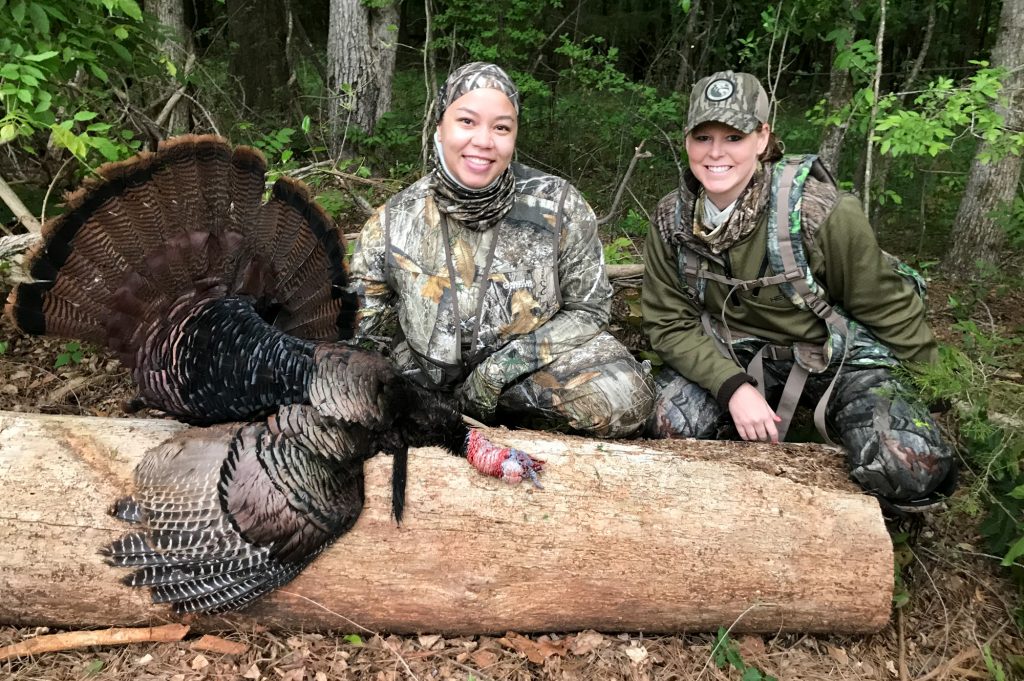Recruiting New Hunters: Does It Matter?
The NWTF is currently celebrating an achievement of reaching over 230,000 adult members. But the organization’s work is far from over. Recent studies continue to emphasize both a decrease in public support for hunting and a decrease in overall hunting participation. In response, the NWTF’s Education and Outreach team and its network of dedicated volunteers are taking strides to recruit more hunters. But why?
“Well for starters, without a healthy population of hunters there’s no way to maintain a healthy population of wild turkeys,” said Morgan Evan, NWTF R3 and relevancy coordinator.
Hunters are some of the nation’s most staunch conservationists. They fund wildlife restoration, conservation and hunter education and safety programs through the Pittman-Robertson Wildlife Restoration Act, which comes from federal excise taxes on firearms, ammunition and archery equipment.
Aside from crucial fundraising, recruiting new hunters directly correlates with more advocates for wildlife and wild spaces.
“Recruiting hunters to specifically hunt turkeys is so important because you have individuals fighting specifically for that species,” said Jen Davis, NWTF hunting and shooting R3 coordinator. “That same concept goes for duck hunters, deer hunters and any other species.”
The concept that, like David Attenborough said, “no one will protect what they don’t care about, and no one will care about what they have never experienced” is crucial for passing legislation at both state and federal levels. Already this year, the Expanding Public Lands Outdoor Recreation Experiences (EXPLORE) Act, a bipartisan U.S. law, was enacted to enhance outdoor recreation opportunities on federal public lands. The legislation aims to improve access, modernize infrastructure, and support various outdoor activities.
“When something changes your life, you’ll work hard to protect that way of life,” Davis said.
Davis is an adult-onset hunter herself. Before she became a hunter, she was a part of a local foraging group; she bought her produce from a local farmers market, and she maintained a garden as a way to harvest food from the landscape. Hunting was the next step for her.
Now in her role as an R3 coordinator, she works with her team to recruit, retain and reactivate hunters across the country by continuing to spark a curiosity to learn more about the outdoors. She aims to recruit groups that will create a strong sense of community and often engages with non-traditional hunting audiences to have conversations about wildlife and conservation.
Evans adds that recruiting non-traditional hunters is important because it emphasizes the idea that public lands are meant to be shared by everyone. As more people utilize public lands, some worry about access.

“Although access to land and hitting a hunting carrying capacity are real issues that we can run into without proper management, our biggest population of hunters and conservation contributors are retiring,” Evans said. “As those hunters age out and retire, we will see an increased need for a steady population of new hunters to take their place.”
There is much value in the outdoors, whether it’s through the health benefits of being outside or the power of harvesting food from the landscape.
“There are studies that prove nature reduces stress,” said Mandy Harling, NWTF national director of Education and Outreach programs. “According to a University of Illinois study, interaction with nature is proven to reduce symptoms of ADD in children. One of my favorite things about hunting is the rare opportunity to unplug. There is something magical about the sights and sounds of the woods waking up and the chance to get away from all the stress and responsibility of the world.”
No one will experience hunting and the outdoors the same, but that’s a good thing.
“If we have this diversity of hunters in the field, they will bring new perspectives and technologies,” Evans said. “As new hunters are recruited, we are breaking down barriers and stereotypes.”
She emphasized efforts like the Hunt For Good campaign, which shares the wide range of benefits of hunting and shooting sports and improves the perception of hunting as a cherished and long-held tradition.
Another large piece of why recruiting new hunters is important lies directly in NWTF’s vision statement: A nation united by the life-changing power of the outdoors.
“A big part of educating and recruiting new hunters is for the preservation of our traditions,” said Jesse Warner, NWTF hunting and shooting R3 coordinator for the Northeast. “The wild turkey is an American success story. It’s not just some farm species.”
Warner was lucky to have had the opportunity to learn to hunt with his dad when he was young. He has years of memories of seeing the sunrise, hearing the first turkey gobble in the morning and feeling the spring air. Now in his role, he has the opportunity to help people learn.
“When people ask me why I’m so passionate about getting people out in the woods, I just tell them it's because I was that kid once. I know what it’s like to be hungry for knowledge,” he said.
But creating new traditions is just as important as remembering the old ones. The stories we experience when we’re outside are really powerful. They hold our community, culture and emotion. As NWTF banquets, mentored hunts and other events happen this upcoming spring turkey season across the nation, the experiences that will be shared will showcase how, one hunter at a time, we are truly working to unite a nation through the life-changing power of the outdoors.
